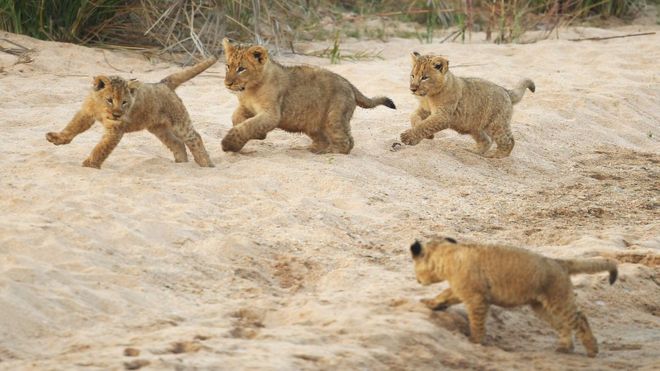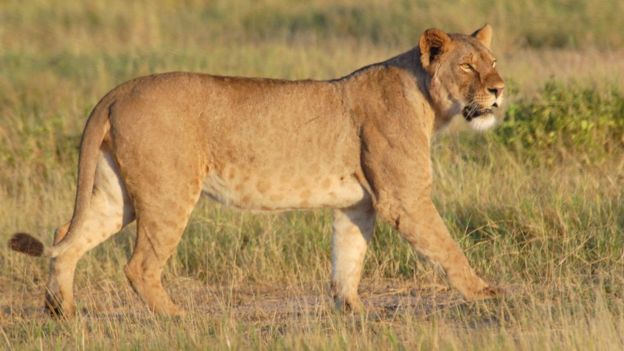The number of lions in Africa is rapidly dropping, except in highly-managed areas in the south of the continent, a study has found.

Almost all lion populations that historically exceeded 500 are declining.
The study suggests that lion populations in unprotected areas could be cut in half over the next two decades.
The paper's authors say lions should now be upgraded to an endangered species in Central and West Africa.
The loss of habitat, hunting, and a demand for traditional medicine have all contributed to population decline.
Lions are currently considered "vulnerable" by the International Union for Conservation of Nature, but endangered status means they would be considered at "a very high risk of extinction in the wild".
The study, published in the Proceedings of the National Academy of Sciences of the United States of America, says "many lion populations are either now gone or expected to disappear within the next few decades".

The study predicts a 67% chance that lions in West and Central Africa will decline by half.
African lion populations are declining everywhere on the continent, with the exception of Botswana, Namibia, South Africa, and Zimbabwe, which are having success with what the paper calls "small, fenced, intensively managed, and funded reserves".
There is a 67% chance that lions in West and Central Africa will decline by half within 20 years, while East African populations have a 37% chance of being halved in the same time.
Those predictions are based on trends in 47 lion populations, containing more than 8,200 animals.
The decline could lead to a reversal of previous trends, making the protected, managed populations of southern Africa more viable than the East African savannah.
A reduction in lion numbers could also change the local ecosystems, "with the lion no longer playing a pivotal role as apex predator", the study says.
The authors also warned that the African lion could come to rely on the small, managed reserves, "and may no longer be a flagship species of the once vast natural ecosystems across the rest of the continent."
From BBC News- Science/Environment
No comments :
Post a Comment